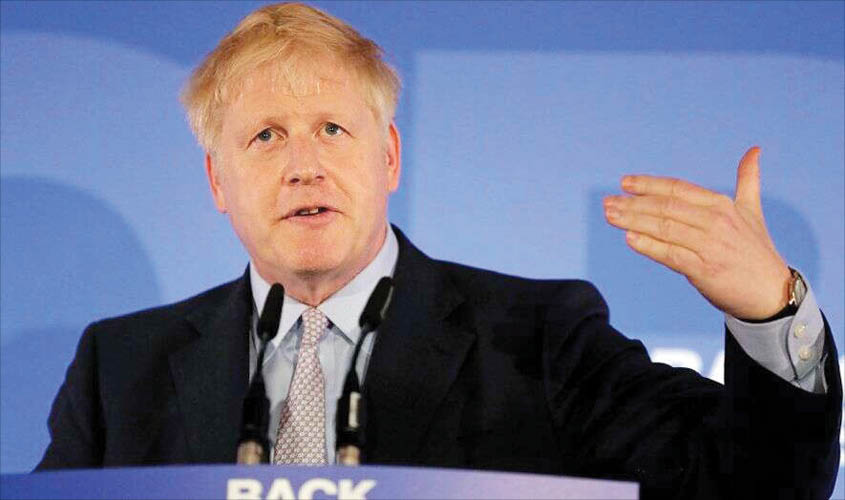MPs have many reasons to be sceptical about China—from human rights to Huawei and security and surveillance.
Boris Johnson is back in No 10. The public is noticeably relieved and anticipating his framework of options on how to relax the lockdown this week. Johnson hinted it will be by baby steps, calibrated by the R-rate, fresh data and the real risk of a second spike that could still overwhelm the NHS. The South Korea model of test, track, trace and test again will be a key to easing the lockdown—an army of 18,000 has been recruited to implement this. Both regional and educational easing are being speculated. Folks worry that regional loosening will give an unfair advantage to the sectors that cannot work from home (construction and agriculture), but conversely those sectors that could work from home have enjoyed their advantage for the past weeks. And there are two aspects to opening schools, first the relief coupled with anxiety for parents and children, but not all parents will return their children before the September term, because the risks are still there. Secondly the concern is that parents whose children return to school will want to go back to work or take social distancing less seriously and meet up with each other or go shopping.
It was noticeable during the PM’s sickness that the Cabinet was rudderless and although Foreign Secretary Dominic Raab was deputised in charge, this was not very convincing. Raab’s claim to fame was resigning in 2019 as Brexit Secretary under Theresa May after only four months in the Cabinet post. As a Brexiteer, he opposed May’s draft Withdrawal Agreement. During the 2019 Conservative leadership bid, Raab was eliminated in the second round, securing 29 of the 33 necessary votes. Raab held onto his constituency seat by a massively reduced majority of 2.7K votes. Raab is capable of getting Brexit done, but his authority rested in Johnson’s absence, his leadership at the daily corona press conference was not up to the next level. Matt Hancock, Health Secretary, was an economic adviser and Chief of Staff for George Osborne; he was brought to the Cabinet in 2018 by Theresa May as Secretary, Digital, Culture, Media and Sport. Hancock withdrew his Conservative leadership bid after the first ballot. After Hancock’s questionable handling of the Covid-19 crisis, it is unlikely anyone would follow him into battle; there were other candidates who had better relevant experience, such as Jeremy Hunt, who had clocked up six years of experience in the post, or Nadine Dorries or Maria Caulfield, both nurses.
The fact is that the 2020 Cabinet was designed in pre-Covid times as a Brexit Cabinet. It is a Cabinet mostly full of subservient loyalists or Brexit-hypocrites in positions where they can do no harm. It is not a strong experienced Cabinet, equipped to deal with an emergency such as the coronavirus—for this a Covid-Cabinet is required, with experienced ministers who have an in depth understanding of their areas of responsibility.
The Cabinet hero of the epidemic is Chancellor Rishi Sunak, who has gone the extra mile to look after businesses of all shapes and sizes. So far 25K approved Business Interruption Loans giving folks nothing to pay for 12 months, Bounce Back Loans available within a week of up to £50K, 1 in 7 mortgages on a repayment holiday, the job retention scheme paying 80% of wages up to £2.5K per month to furloughed employees and a mega support package for Rugby Football League.
This week the government launched two new initiatives: the public may now ask a question at the daily corona press conference, questions are selected by an independent polling organisation and ministers do not know the questions beforehand. And a government checklist website with advice how to recognise and avoid spreading disinformation and false accusations—the mantra on the website is “Don’t feed the Beast”.
China is now centre stage. Instead of Eurosceptics, Parliament is now full of PRC-sceptics.
They find many reasons to be sceptical—from human rights, to Huawei/security and surveillance/UK’s relationship with US. Dean Godson, Director of Policy Exchange, explores the multiple strands of political thought in an excellent article, How the Conservatives divide on policy towards China.
Tom Tugendhat, MP, is actively challenging the government’s and especially the Foreign Office’s approach to relations with China. As Chair of the Foreign Affairs Committee, on April 6, the Committee published a report entitled, “The FCO’s role in building a coalition against COVID-19”, which is critical of the Chinese authorities’ approach to data and WHO’s procrastination. The report recommends a science led “G20 for Public Health” and a leading role for the FCO in reforming how worldwide data is shared and verified, and to prepare the response for a next pandemic.
Tugendhat has also set up the China Research Group (CRG), likely comprising many of the powerful ERG members. This is a collection of MPs who seek to inform the debate on Beijing’s economic and diplomatic policies. It seems they are concerned about the transparency of China’s strategic investments in UK, amongst other issues. Tugendhat is focusing on rethinking Britain’s engagement with China. On 27 April, the CRG began a daily newsletter circulating their accumulation of international, political, economic news links about China. In a published letter to First Minister Raab, Tugendhat outlines an idea to hold China accountable for the misinformation around Covid-19 that has resulted in the pandemic, demanding investigations into China’s interference in the Hong Kong judiciary and the recent sea/air military activity around Taiwan, and to know how UK will support Taiwan in the future. And regarding China’s military activities in the South China Sea, Tugendhat is encouraging a G7 representation, outreach to Japan and ASEAN for security co-operation.
One thing that is common and clear is that all parties want a new international biosecurity agreement for the future.

